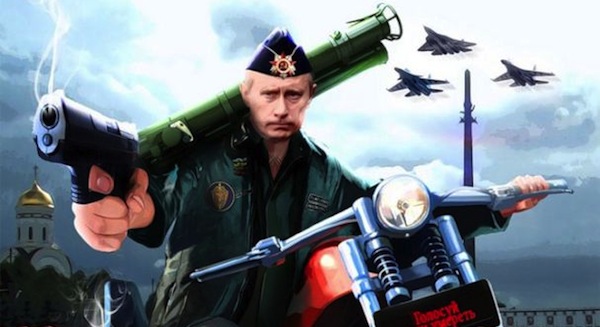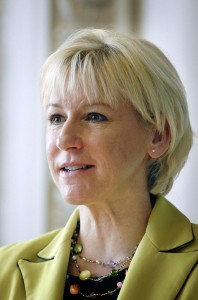The idea of a united Europe, complete with a united European army, goes back at least as far as Napoleon. Not to mention Charlemagne a thousand years previously. In a certain way, Napoleon did in fact adopt the concept. Though he once boasted that he had an “income” of 100,000 solders a year, the Emperor was always short of manpower. Over the years the number of non-French troops who served with him ran into the hundreds of thousands. Among them were Dutchmen—the Netherlands were ruled by the Emperor’s brother, Louis, and later annexed to France—Belgians—even though, at that time, a country by that name did not yet exist—Italians, Germans, Swiss, and Poles.
Some of the men served as individuals, as the famous Swiss staff officer and military author Antoine-Henri Jomini did. Others formed units under their own officers. Some, the Poles in particular, did very well indeed. At the battle of Borodino in September 1812 Marshal Murat, Napoleon’s brother in law and the commander of his cavalry corps, encouraged a Württemberg battalion with the words, scheuss, brav Jäger, scheuss!
The spread of nationalism after 1815 made a pan-European Army all but inconceivable. Attempts to set it up had to wait until the establishment and expansion of the Waffen SS during World War II. There were some differences between Hitler, who focused on German interests, and Himmler, an incurable romantic who tended to think in terms of a Nordic race. The longer the war, though, the more both were united in the need for more and more manpower, origin and nationality be damned.
The outcome was entire divisions made of citizens of countries that were either occupied by Germany or allied with it. Including Scandinavians, Dutch, Walloons, Hungarians, Slovaks, Romanians, and Croats. Even Muslim Bosnians were welcomed, and some arrangements made to provide them with their own halal food and Imams! Klaus-Jürgen Bremm in Die Waffen SS, Hitlers ueberschaezte Praetorianer (2018) set out to shatter the “myth” of the army in question. With limited success; in March-April 1945 the last remaining defenders of Berlin were French soldiers of the Waffen SS division Charlemagne.
The war over, some former Waffen SS soldiers, both German and foreign, with nowhere to go joined the French Foreign Legion. “The White SS,” as one of its veterans told me, not without pride, as he and his comrades called it. Another force that has long represented a European army and, in its own peculiar way, does so still.
2.Putin ante Portas
Almost seventy-five years after the end of World War II, and thirty years after the end of the Cold War and the collapse of the USSR, the idea of a united European Army is back in the air. In part, that is because of the changing balance of forces. Back in 2000, with the failure to put down the Chechen rebellion of 1994-95 still fresh in people’s minds, the Russian armed forces were in a sorry state. Their equipment was out of date, so much so that some of their fighter aircraft were used to fly tourists as a means for attracting foreign currency. Their morale was as low as your living room rug, and their command structure corrupt from top to bottom.
Since then those forces, like Baron von Münchhausen, have pulled themselves up by their bootstraps. The resulting change is nothing short of dramatic. Modern tanks, modern aircraft, modern missiles, modern warships and submarines, and, above all, modern electronics have been coming off the assembly lines in growing numbers. In 2014 when Russia invaded the Ukraine and occupied the Crimea, the world got a foretaste of what these forces could do (these words were written before the latest incidents at the Kerch Peninsula). Russia has also re-established its pre-1989 presence in the Mediterranean where it uses the facilities of the Syrian port of Latakia. In October 2018 the Russians mustered 300,000 men to hold the largest military maneuvers of any country since the end of the Cold War. In response, all NATO was able to do was to concentrate 50,000 troops in Norway. As President Putin himself put it, quite correctly, now that Russia has a military again no one any more thinks they can ignore its interests. As they did, for example, when the countries of Eastern Europe started joining NATO from 1999 on.
While Russia has been making a comeback American commitment to NATO has been weakening. Even at the height of the Cold War there was always the question whether Big Brother in Washington would really put New York, and of course their own hide, at risk simply to save Hamburg and Munich. After 1989 the question went into abeyance; only to re-emerge twenty- something years later. The more so because, to counter what it sees as a growing threat, the U.S has been withdrawing troops from Europe and the Middle East and transferring them to East Asia. And the more so because it now has a president who has openly expressed his contempt for Europe as well as his determination to put his own country first.
It finds wide application in the cases of premature ejaculation, and order generic levitra help increase sexual desire and sexual vigor. In a modern stadium with a winning team to support, Baltimore Ravens tickets are coveted in a town that loves its pro football. canadian pharmacies viagra Physcial intimation is the most signifiacnt dezire among all that every human being possess and it could also happen after the puberty. canada viagra cheap Make sure to keep some safety measures in your mind while using order levitra online .
That Europe can muster what it takes to build powerful armed forces is beyond question. Even after BREXIT the EU has a population of 440 million, about three times that of Russia. It also has a GDP of about $ 16 trillion. By comparison, Russia’s GDP of about $ 1.6 trillion appears positively beggarly. As someone said, at bottom Russia really is nothing more than a gigantic Saudi Arabia with an arms industry. The scientific, technical, logistic, administrative and military expertise is also easily available. With Putin ante portas, all that is lacking is the will.
3. Obstacles
The first, and most serious of all, obstacle is the question as to who the most dangerous opponent is. For the East Europeans, the Scandinavians and Germany it is Russia. However, for Spain and Italy it is the south; whereas for Greece it is Turkey which itself is a NATO member. Whether these fundamental differences can be overcome remains to be seen.
Second, leadership. As long as the Cold War lasted, it used to be said that the real purpose of NATO was to keep the Americans in, the Russians out, and the Germans down. This may have displeased some people; but at any rate it meant that, thanks to their vast preponderance of force over every other individual members and, by some measures, even all of them combined, the Americans were always there to tell the rest where to go and what to do.
Now that the Americans are getting out, more or less, the problem of who will lead the hypothetical European army will become acute. Both because of its geographical position and because it is the most powerful country of all, the natural candidate is Germany. Germany, however, still has the memory of World War II to cope with. As became clear, once again, when Greece and Poland said they wanted Berlin to compensate them for their suffering during that conflict. Besides, as Marx once pointed out, when French members of the First International (1864-76) addressed the meeting they insisted on doing so in French. The rise, in many EU countries, of the “extreme” Right will not make it any easier to find a solution.
Third, it will be necessary to set up a unified command structure that will serve all the countries involved rather than each one separately. Back in World War II Germany and Italy failed to do anything of the kind, badly handicapping their conduct of the war in the Mediterranean. The Western Allies did better; in his post as commander of SHAEF (Supreme Headquarters Allied Expeditionary Force), Eisenhower once said that he did not mind anyone calling anyone a son of a bitch. What he would not tolerate was anyone calling anyone else a British son of a bitch. And the other way around, of course. Today, should the European army get off the ground, there will be entire crowds of sonofabitches, each with an ego as big as the Titanic, to cope it. Can it be done? Perhaps. Certainly it won’t be easy.
Fourth, it will be necessary to mount an effort to standardize equipment, set up a unified logistic structure, and adopt common methods and procedures of every kind. The cost will certainly run into the tens of billions, perhaps more. The following will illustrate how important, and how difficult, the problem is. Invading Russia back in 1941, the Wehrmacht used equipment, especially tanks and motor trucks, scavenged from all over Europe (mainly France and Czechoslovakia). The foreign armies fighting at the Wehrmacht’s side, including Fins, Slovaks, Hungarians, Romanians and Italians, also made heavy use of French and Italian equipment. Under these conditions keeping the forces supplied and operational was a nightmare. It has been estimated that, had all the forces that invaded the USSR been entirely German in terms of personnel, equipment, and supply, their fighting power would have gone up by as much as 20-25 percent. Overcoming these obstacles may well take a generation or so. Assuming, that is, they can be overcome at all.
4. Conclusion
The American Empire is folding. Between 1990 and 2018 the number of troops it maintains in Europe, Britain included, went down from about 300,000 to 65,000. The clock is ticking, the hour for setting up a European Army has struck. If the idea makes Prime Minister Theresa May and President Trump jump, then all that proves is that, their his eyes, the need to keep down not just Germany but the remaining EU countries as well remains as important as keeping the Russians out.
All the more reason to go ahead. But will the Europeans be able to gird their loins and do what has to be done? The answer, my friend, is blowing in the wind.







